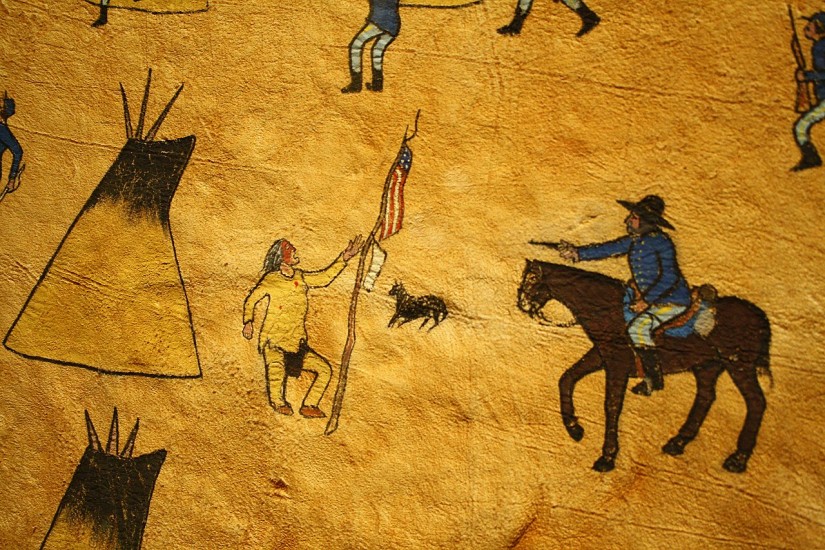Indigenous studies scholars have argued that the history of the United States is a history of settler colonialism, “whereby an imperial power seizes Native territory, eliminates the original people by force, and resettles the land with a foreign, invading population.” Settler colonialism, Nick Estes has argued, “calls for the annihilation of Indigenous peoples and their other-than-human kin”; it is a historical structure that demands Indigenous destruction, resource extraction, and settler colonial dominion.[2] The history of the Civil War does not exist outside of this longer history of U.S. colonialism. If we appreciate the Civil War as more than an “event” – but instead a pronounced moment of acute violence within a broader chain of structural violence – “the West” no longer appears marginal or “inconsequential.”[3] Rather, the West emerges as an equally important arena in the fight for settler colonialism’s future. We might, therefore, rethink the Civil War as the violent contest over visions of the implementation of conquest.
As generations of scholars have noted, the future of the West was at the heart of the sectional crisis. Rightfully, scholars have spotlighted the political, cultural, moral, and economic salience of slavery in explaining the sectional wedge that formed within White America during the mid-nineteenth century. Anti-Blackness – whether it be of the xenophobic variety of “Free Labor” advocates, who worked tirelessly to forge an all-White western utopia, or of the exploitative variety of slaveholders and their proxies, who wanted to extend their regime of violence and terror against enslaved people westward – drove mid-century White visions of the West. The political controversies of Texas and Mexican cession, the founding of California, and the Kansas crisis all exposed how diverging White assumptions about the West’s future fomented sectionalism in the United States. Of course, any frank (White) assessment of the West presumed the eventual – if not inevitable – conquest or displacement of Native peoples, as westward settler expansion (by slaveholders, Free Soilers, and others) necessitated the “emptying” or “freeing” of Native lands. And this is to say nothing of the “stars” of the Civil War who, like Robert E. Lee, earned their stripes in the violent gauntlets of the West.




















